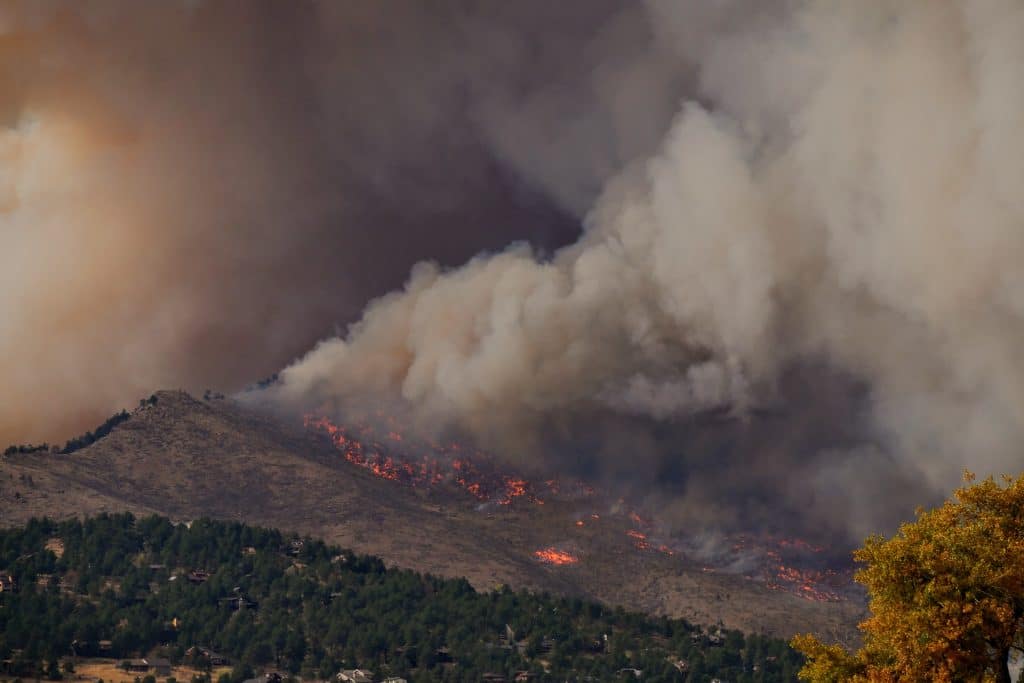The wildfire in Evros has killed at least 20 people over the past 10 days, becoming Europe’s deadliest blaze so far this summer.
—
More than 600 firefighters from Greece and several other European countries are working incessantly to contain a wildfire that has been raging near the northeastern Greek region of Evros for ten days and that has so far killed at least 20 people.
Charged by strong winds and high temperatures that soared above 40C, the wildfire has spread uncontrollably from the city of Alexandroupolis across the entire Greek region. Deputy governor Dimistris Petrovich told national broadcaster ERT on Sunday that the fire, which at that point had been raging for nine days, was unlikely to be brought under control.
A number of blazes broke out in northern and central Greece last week, including one in the northwestern outskirts of the capital Athens. The Evros region close to the Turkish border was among the worst affected, with more than 77,000 hectares (190,271 acres) of land completely burnt as of Sunday. According to Reuters, 19 of the 20 victims of the Evros blaze were irregular migrants hiding in the forest.
Smoke from the fires, which traveled all the way to southern Italy, significantly worsened air quality in the region. According to European Union-backed Copernicus Climate Change Service, the cumulative fire carbon emissions for Greece this year are already “significantly higher” than the mean for the past two decades and currently the third highest in the country’s history, behind just 2007 and 2021.

Cumulative Daily Total Wildfire Carbon Emissions for Greece. Image: CAMS.
Thousands of people have fled their homes across Greece this summer due to wildfires. In July, some 19,000 tourists were evacuated from the island of Rhodes as dozens of ferocious wildfires spread uncontrollably on three fronts across the Aegean island over the hottest weekend the country had seen in 50 years.
But as the planet continues to warm, so grows the list of countries affected by wildfires. Other European countries, including Turkey, Italy, and Spain, dealt with record-breaking blazes this summer. Canada is also battling its worst wildfire season ever, with scientists saying that climate change doubled the odds of extreme fire conditions in the nation. Earlier this month, devastating wildfires wreaked havoc on the west coast of the Hawaiian island of Maui, killing at least 115 people and completely destroying the historic town of Lahaina.
Featured image: Malachi Brooks/Unsplash
You might also like: Mediterranean Sea Surface Temperature Hit Record 28.7C, Highest In Four Decades


















